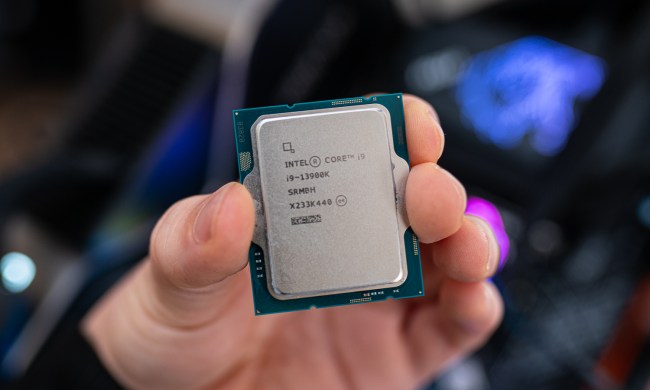Update: Intel has provided Digital Trends with the following statement about CPU instability affecting mobile processors:
“Intel is aware of a small number of instability reports on Intel Core 13th/14th Gen mobile processors. Based on our in-depth analysis of the reported Intel Core 13th/14th Gen desktop processor instability issues, Intel has determined that mobile products are not exposed to the same issue. The symptoms being reported on 13th/14th Gen mobile systems – including system hangs and crashes – are common symptoms stemming from a broad range of potential software and hardware issues. As always, if users are experiencing issues with their Intel-powered laptops we encourage them to reach out to the system manufacturer for further assistance.”
The original report remains below.
Following the reports of Intel’s top-of-the-line Raptor Lake desktop CPUs crashing under load, it seems the issue might be more widespread than we imagined. Apparently, the problems that have plagued the desktop versions are now manifesting in their mobile counterparts.
Matthew Cassells, founder of Alderon Games (developer of Path of Titans), reports that Intel’s 13th- and 14th-gen Raptor Lake laptop CPUs are prone to instability and crashes. However, these issues occur less frequently than with their K-series desktop counterparts. “Yes we have several laptops that have failed with the same crashes. It’s just slightly more rare then the desktop CPU faults,” the developer said on Reddit.
Although he didn’t specify which processor models in Intel’s 13th- and 14th-gen mobile lineup are most affected, it’s reasonable to anticipate that the flagship HX series processors could be affected. If we look at the trend with desktop CPUs, the most powerful and power-hungry Core i9 Raptor Lake and Raptor Lake Refresh chips have been prone to instability.
Just last week, Alderon Games put out a damning statement on the situation, calling Intel’s desktop CPUs “defective” and threatening to move to AMD.

The situation with Raptor Lake CPUs underscores the challenges of developing high-end technology that is both powerful and reliable. As of now, Intel has not issued a statement addressing the widespread nature of these issues.
Users experiencing these problems are advised to ensure their systems are running the latest firmware and drivers, as these updates can sometimes mitigate stability issues. However, for many, this may not be a satisfactory long-term solution.
A few days ago, Areej Syed of Hardware Times reported that the publication had to RMA (return materials authorization) the Core i9-13900KF twice. The second unit from Intel performed decently well at first but then began crashing every other minute while running The First Descendant. Syed shared an Event Viewer log showing a staggering 44,242 error events.
Despite the clear evidence of a faulty CPU, Intel initially suggested a refund but later claimed that a refund was not possible. Our own reporting on the matter, however, indicates that Intel is honoring returns for some users.



